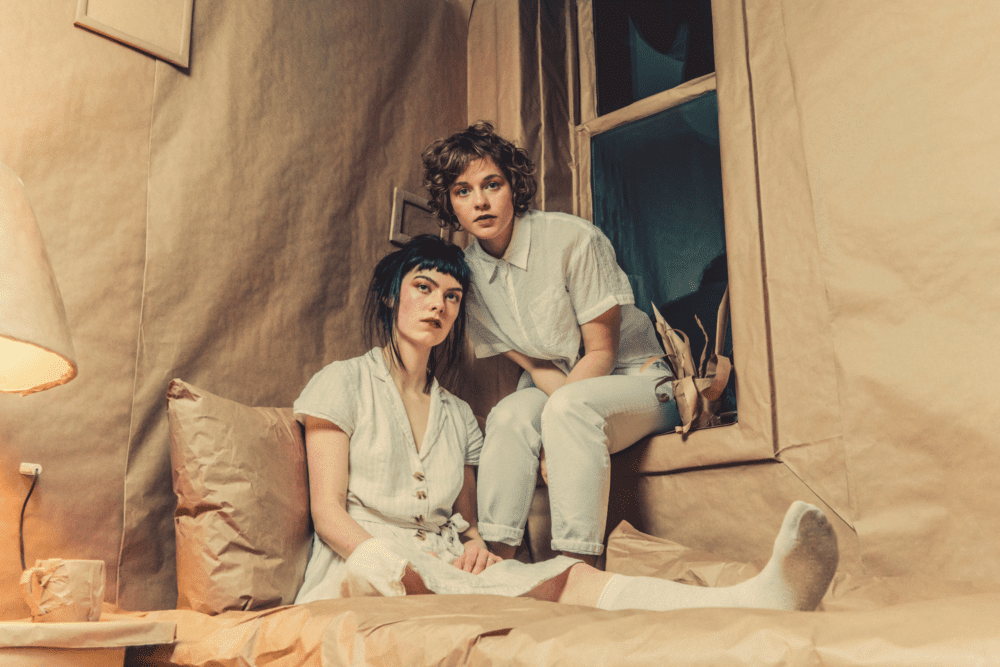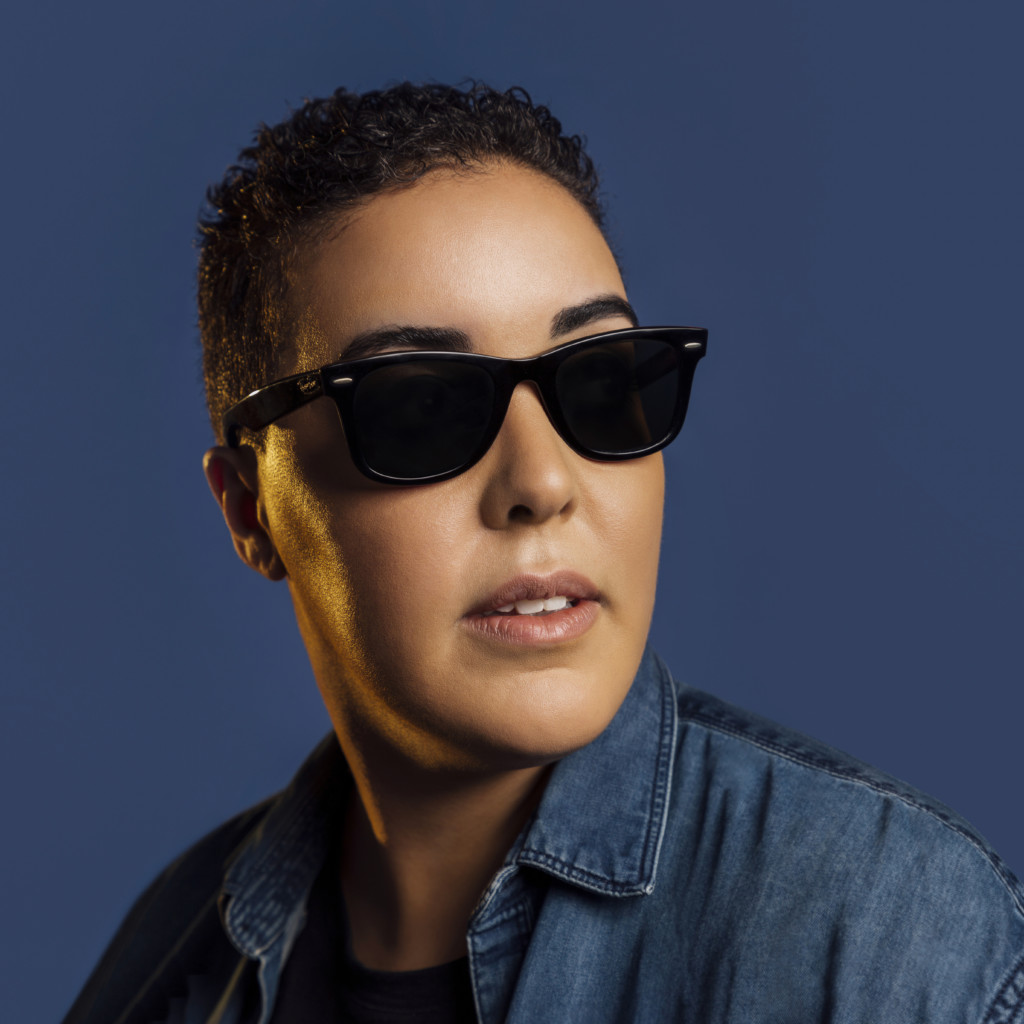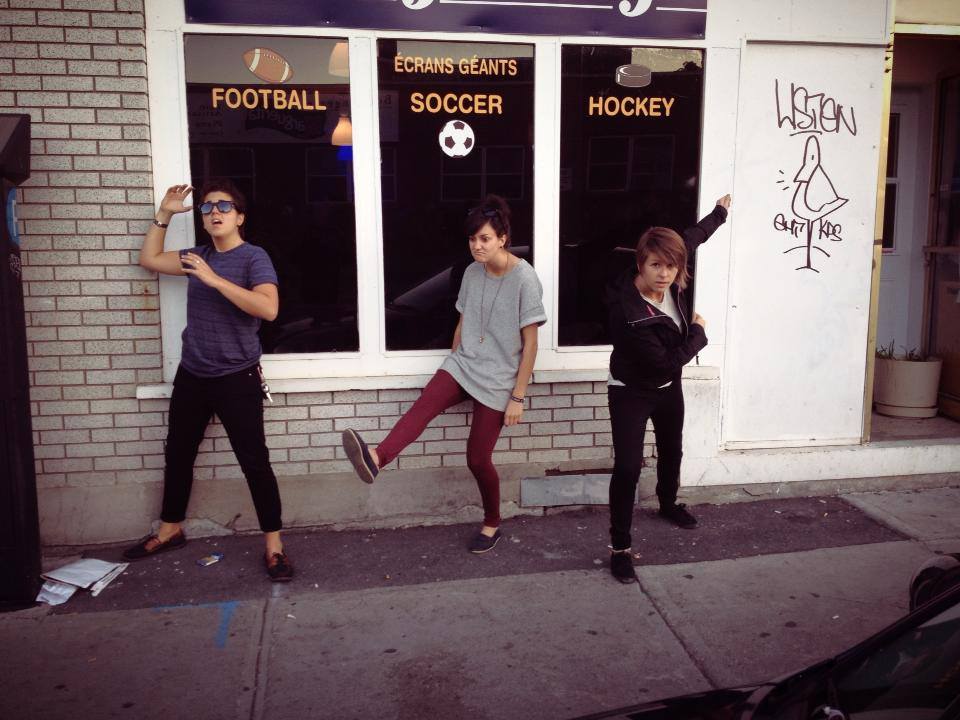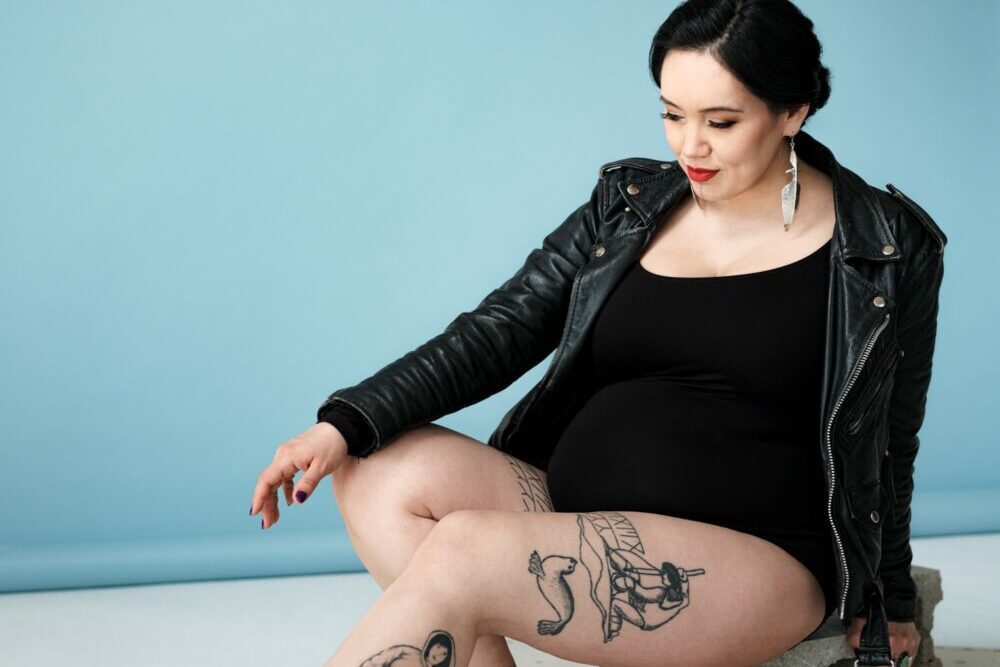
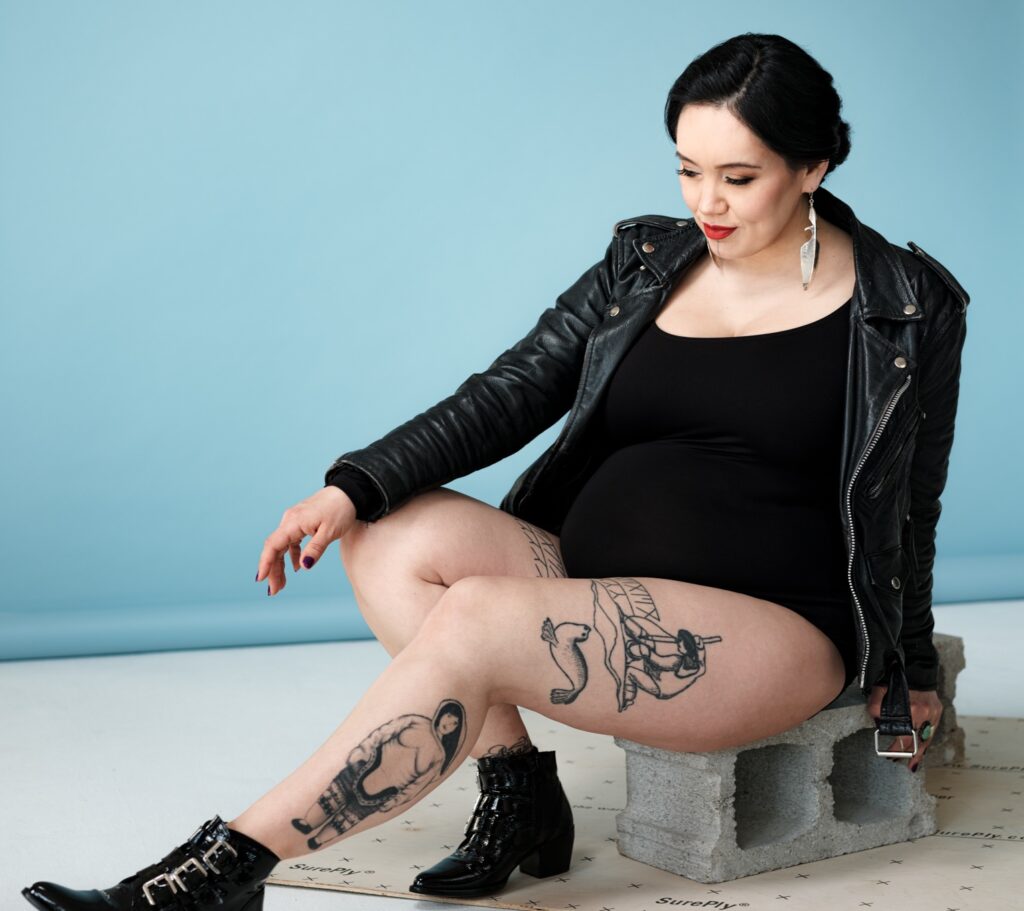
“Sunauvva,” from Beatrice Deer’s latest album, Shifting, is a joyous indie pop song with layered production that gives it a psychedelic feel. “That song, I wanted it to have that sense of happiness and I think that it really came through because it’s a song that I want to dance to,” says Deer by phone from her home in Montreal.
The singer offers a translation of the lyrics, which are sung in Inuktitut, an Inuit language. “If you would have told me back then that I would be happy, I wouldn’t have believed you. If you would have told me that I would forgive, I wouldn’t have believed you,” she shares. The song’s big reveal, though, is that the singer did find happiness. “That’s the meaning of the song. I feel the music really reflects that,” says Deer.
Shifting is the sixth album from Deer, a multiple award-winning singer and songwriter who incorporates Inuit throat singing into songs that she sings in Inuktitut, English and French. It’s an album that was recorded in the midst of the pandemic. “That was kind of a blessing in disguise because it allowed us to stay put in Montreal and focus on producing the album,” says Deer. “In normal circumstances, all the band members are busy and traveling because they’re in other bands.”
Since touring was off-calendar, though, it allowed for more time to be spent on the production of Shifting. Mark “Bucky” Wheaton, who plays drums for Deer, and guitarist Chris McCarron handled the production duties at their Montreal studio (they’re both longtime members of Lizzie Powell’s Land of Talk project). While some collaborators recorded their parts at home, Deer and a few other other players were able to record in-person, at the studio, in separate sessions. “Normally, we would all be in the studio at the same time,” she says.
The extra time, she adds, gave Wheaton an opportunity to experiment more with the production. “The album is different than our other albums because of that. It gave him a lot of freedom to explore,” she says.
“Sunauvva” is an example of that experimentation. “I write really basic stuff and then the band, Chris and Bucky, were also arranging the songs as we were recording. They came up with the arrangement,” says Deer. “I don’t know what magic Bucky pulled, but he really changed the sound and it just came out that way.”
There was also some experimentation in writing the songs. “Mother,” as it appears on the album, is based on lyrics that Deer wrote in Inuktitut. She asked her friend Kathia Rock to adapt it into French. “It’s not a literal translation,” she says. “It’s a version in French.”
Deer was also pregnant while working on the album. Her baby is now five-and-a-half months old. “I’ve been doing a lot of interviews and rehearsing and I really had no idea that it was going to be this much work with a newborn and releasing an album,” she says with a laugh. “I’ve been juggling a lot of things.”
Deer and her band began playing live again in the fall. Their first performance was at El Mocambo in Toronto last October. “You have a nervousness. The COVID nervousness— am I too close?” she says. “It’s a different kind of stress. But the musicians in my band are so professional and they impress me above and beyond every time.”
Deer continues, “When we rehearse, we’re used to playing with each other, so it’s not any different, but it’s weird playing in front of an audience, after two years of being in the pandemic now.”
On Shifting, Deer and her bandmates seamlessly meld a variety of sounds from the traditional to the contemporary. An example is “Aanngiq,” which is a traditional Inuit song that they reimagined with drone and guitar sounds that swell during the course of the song. “It’s very modern,” says Deer. “Bucky really played around with that one and it turned out great.”
“The traditional version is just a cappella,” Deer explains. “Traditional songs don’t necessarily have a linear storyline. Sometimes, they’re random words and then, all of a sudden, there’s a sentence that means something.”
For Deer, who is of Inuk and Mohawk heritage, traditional Inuit songs and stories are a part of her upbringing. “As soon as Inuit children go to school, they start learning traditional songs. It’s part of school, it’s part of the curriculum,” she says, adding that “Aanngiq” is a song that she learned as a child. “I like to include traditional songs just to keep them alive and promote the language and promote culture.”
Deer notes that storytelling and singing is an important part of Inuit culture and that has been and impact on her work as a singer and songwriter. She says, “It’s my form of continuing that practice.”
Follow Beatrice Deer on Instagram for ongoing updates.








